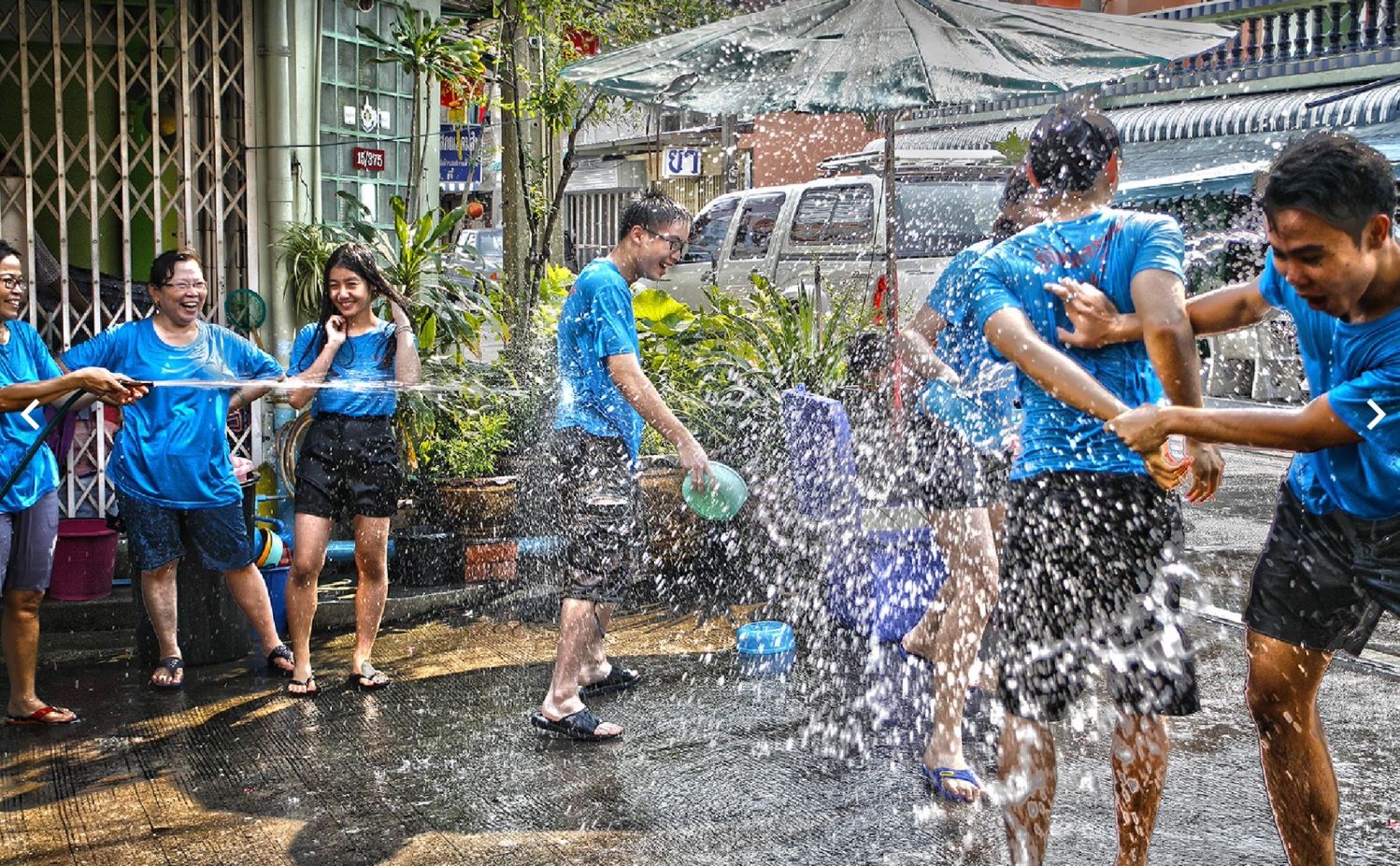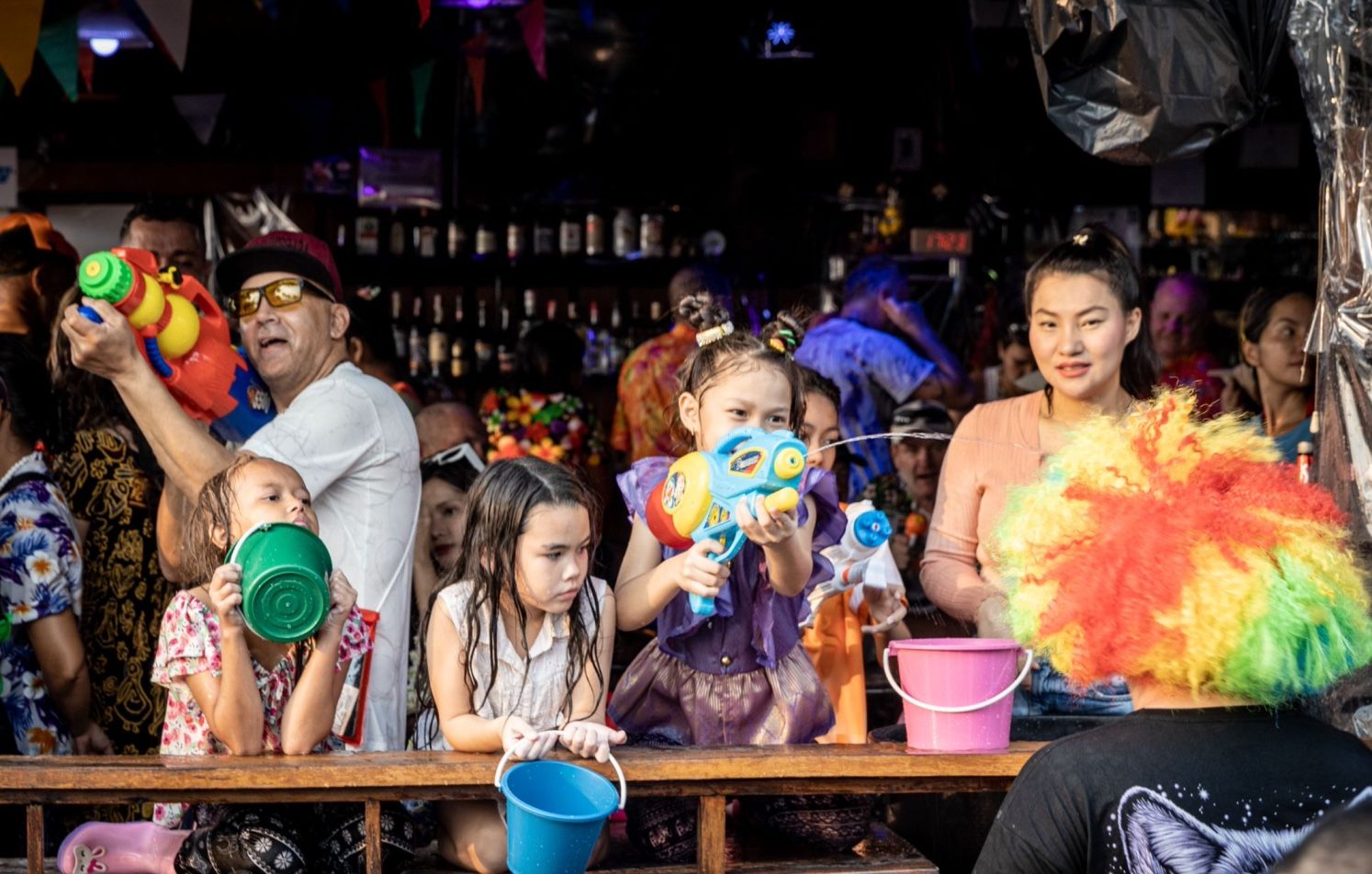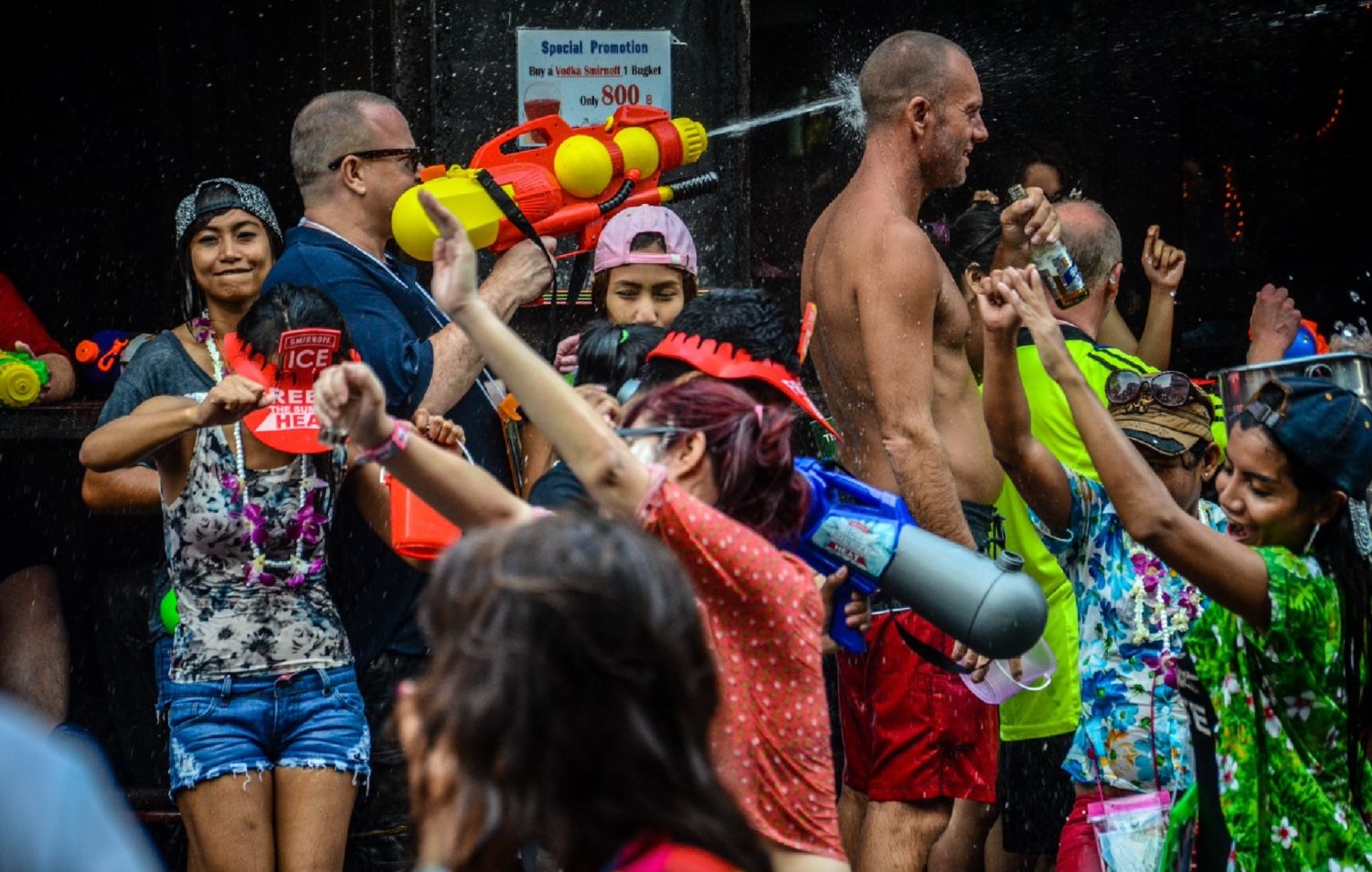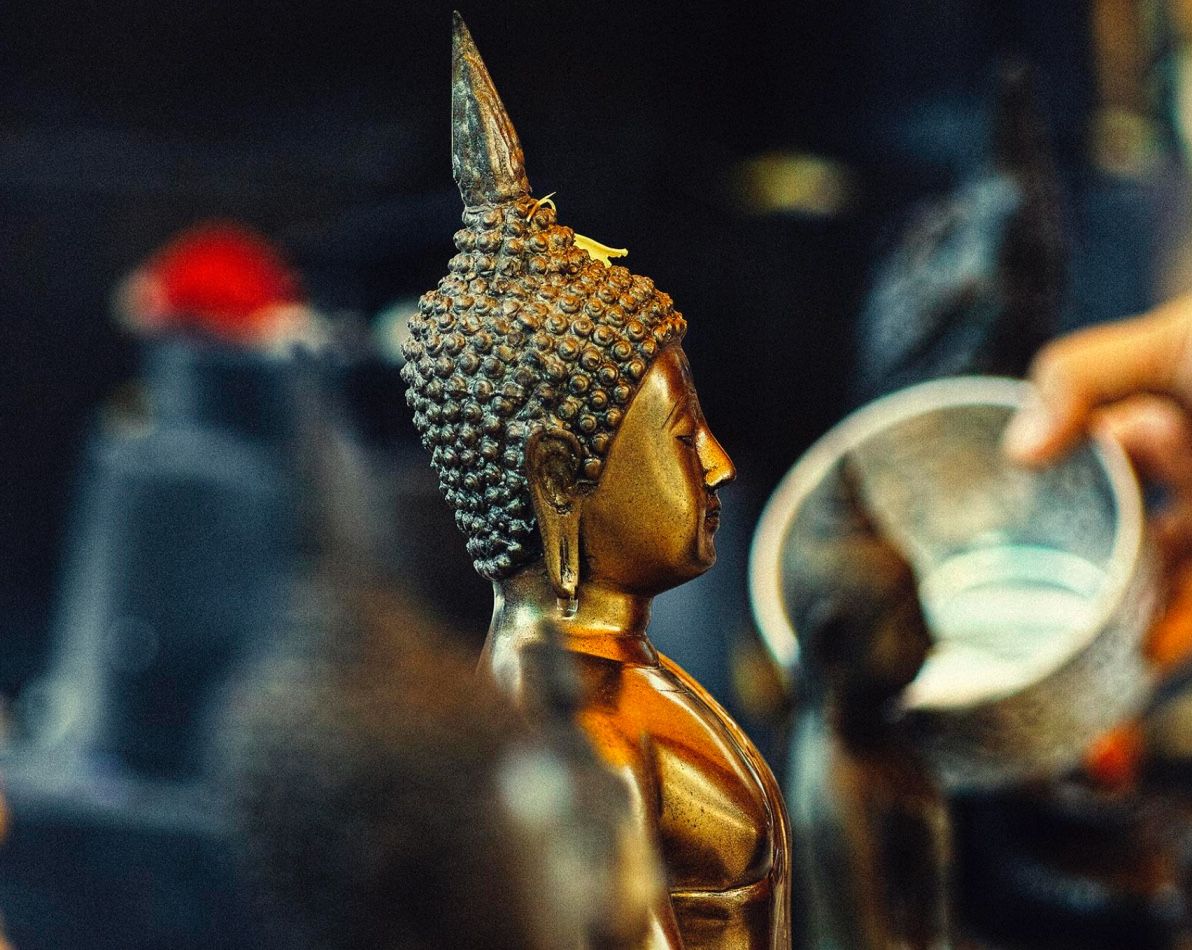Local Guide to Celebrate Thailand’s Famous Songkran Festival
This beginner’s guide to Thailand’s Songkran Festival offers local advice on must-do activities, the festival’s rich history, and unique Thai New Year traditions—helping you get ready to experience the world’s most exciting water celebration.
If you’re searching to join the cultural festivals in Southeast Asia, or planning the holiday during Songkran, you’ve landed in the right place. Our local guide breaks down everything you need to know—from the spiritual roots to the splash-filled celebrations—so you can fully embrace this one-of-a-kind experience.
Songkran marks the beginning of the Thai New Year and has evolved from a sacred tradition into the most exhilarating water festival in Thailand. What started with respectful temple visits and offerings has transformed into a nationwide water fight that floods the streets with fun, laughter, and cultural pride.
- Check out Thailand Luxury Tours
Why is Songkran so popular?
Songkran wins hearts by blending Thai New Year traditions with fun water fights. Locals and tourists visit temples, honor elders, and enjoy massive splash fun battles in the streets. The festival cools off the April heat while symbolizing renewal and fresh starts. Music, food, and joy fill the air, making Songkran one of Thailand’s most beloved cultural celebrations.
When in Songkran water fight 2025?
In 2025, Songkran Festival will take place from Sunday, April 13 to Tuesday, April 15. These are the official dates, but in many parts of Thailand—especially in cities like Chiang Mai, Bangkok, and Phuket—the celebrations often start earlier or continue for a few extra days.
An A to Z guide to “Sogkran Festival in Thailand”
Planning to celebrate Songkran in Thailand? Get ready to dive headfirst into a wild mix of culture, chaos, and community. This isn’t just another holiday—it’s the Thailand New Year festival, and it will leave you surprised, soaked, and completely enchanted.
To help you make the most of this unforgettable water festival in Thailand, we’ve gathered everything you need to know—from local customs to practical tips—so you visitors join the fun like a locals do.
What is Songkran festival in Thailand?
Songkran is the Thailand’s Traditional New Year Festival which celebrates annually from April 13th to 15th, Thailand erupts into celebration for the country’s traditional New Year festival.
While most travelers know it for the epic water fights splashing through the streets, the holiday holds much deeper meaning. Locals welcome the Thai New Year by cleansing away misfortune, honoring their ancestors, and preparing for fresh beginnings.
Beyond the fun and chaos of the water festival Thailand is known for, Songkran also includes meaningful rituals. Families visit temples, offer food to monks, and pour fragrant water over Buddha statues as a symbol of spiritual renewal.
Many people also show respect to their elders by gently pouring water over their hands while offering blessings.
In short, Songkran Thailand blends heartfelt tradition with joyful celebration—making it one of Southeast Asia’s biggest celebrated cultural festivals.
Why do people throw water at each other during Songkran?
Water is symbol of purity and during Songkran, people throw water at each other to purify themselves, wash away bad luck from the past year, and welcome the new year with a fresh start.
Every April (13th t 15th), when Songkran is celebrated in Thailand, this traditional new year combine with meaningful rituals, making it one of the most unique and emotionally rich festivals in Southeast Asia.
What do Thai people do in Songkran?
Many Thais start the celebration by visiting temples to make merit, offer food to monks, and receive blessings for the coming year.
Local Thai pour water over Buddha statues and images, monks, and elders’ hands—a gesture symbolizing cleansing, respect, and good fortune. Younger Thais honor their elders through a meaningful custom called “Rot Nam Dam Hua,” gently pouring water on their hands and asking for blessings.
Parades, traditional dances, and folk shows fill the streets, adding joyful chaos and cultural pride. Families and friends make Thai dishes, share laughs, and strengthen their bonds. Many also make merit by offering food to monks.
In the days before the Songkran festival, people clean their homes—a ritual symbolizing renewal and a clean beginning.
What is the 3 day water fight in Thailand?
The 3-day water fight in Thailand celebrates Songkran, the traditional Thai New Year festival held annually from April 13–15. Rooted deeply in Thai culture and spirituality, Songkran blends temple merit-making and respect for elders with its now globally famous, epic nationwide water fights.
What are the rules for Songkran?
Rules are to respect local etiquette during Songkran keeps the celebration joyful for everyone. Although the festival gets wild (by strongly pouring water at each other), you’ll still need to follow a few important rules. Avoid splashing water on monks, young kids, or the elderly. Stick to using clean water, and skip any rough pranks. These simple gestures help preserve the fun while honoring Thai traditions.
Why is Songkran 3 days?
Traditionally, Thai celebrate Songkran for three days, beginning with the first full moon in April. This timing follows the lunisolar Theravada Buddhist calendar, which guides many cultural and religious events in Thailand. Interestingly, the word “Songkran” comes from ancient Sanskrit and means “to enter” or “to pass into,” symbolizing the zodiac’s transition into a new astrological phase.
What is the Songkran myth?
Like many of other Thailand’s colorful festivals, Songkran draws its roots from ancient myths and legends. At the heart of this celebration lies the story of Nang Songkran—the Seven Ladies of Songkran—each representing a day of the week. According to the legend, Kabila Phrom, a form of the Hindu god Brahma and known as the creator with four faces, plays a central role in this myth.
What not to do during Songkran?
Avoid throwing water at moving vehicles or drivers during Songkran—it’s not only dangerous and likely to cause accidents, and it is also illegal. Stay safe and keep the fun focused on the crowd, not the road. Additionally, Do Not Wear swimsuits and revealing outfits. Even though everyone gets soaked, Songkran isn’t a beach bash. Authorities actively fine people for wearing indecent clothing during the celebrations.
What is the world’s largest water fight?
Songkran Festival could be the world’s largest water fight? Every year, from April 13 to 15, within 3 days, Thailand rings in the New Year with this lively celebration. Locals and visitors across the country join in the festivities, which famously turn streets into splash zones filled with water fights, cultural rituals, and joyful chaos.
Where is the best place to go for Songkran?
Literally anywhere in Thailand could be the best place to celebrate and join the crowds to enjoy and experience Thai traditional water festival (New Year). Here are 3 of the best places:
- Chiang Mai: The biggest and wildest Songkran celebration.
- Bangkok: Especially vibrant along Khao San Road and Silom.
- Ayutthaya, Pattaya, Phuket: Also have massive street parties.
Is Songkran better in Bangkok or Phuket?
Although Bangkok often referred to as the best place to experience the Songkran Festival—with its countless temples and massive crowds creating the largest celebration in the country—the traffic becomes absolute chaos. Roads grind to a halt, making it almost impossible to get around. For a smoother and more enjoyable experience, consider heading to Chiang Mai or, even better, soaking up the fun in Phuket instead.
Is Songkran a Buddhist festival?
Yes, Songkran is closely tied to Buddhist traditions, but it’s not solely a religious festival. It began as a cultural celebration marking the Thai New Year and draws heavily from Theravāda Buddhist customs, especially those involving merit-making, temple visits, and paying respect to elders.
However, over time, Songkran has blended its spiritual roots with vibrant, public celebrations—like water fights—which symbolize cleansing and renewal.
So while it’s deeply influenced by Buddhism, it’s also widely seen as a national holiday and cultural event that combines faith, family, and fun.
Are shops open during Songkran?
During the festival, most offices, banks, and family-run restaurants close their doors to join in the celebrations (April 13th to 15th). However, shopping malls typically stay open, offering a mix of modern convenience and festive energy for those still out and about.
What do you wear during Songkran?
A simple t-shirt and a short would be enough. however, dress respectfully, specially if you are around elder people and near religious temples. Even though the weather feels hot, remember that Songkran holds deep cultural and religious significance. For added comfort, wear a swimsuit underneath your outfit—you’ll definitely get wet, and this extra layer helps you enjoy the activities with ease and respect.
How do Thai clean and prepare for Songkran?
Thai take on cleaning before Songkran as a meaningful way to welcome the new year. By clearing out clutter and scrubbing away dust and dirt, they symbolically purify their houses and shops. This tradition reflects the belief that a clean, refreshed home invites good luck and prosperity, setting a positive tone for the year ahead.
Do you give gifts for Songkran?
During the Songkran Festival, people don’t just celebrate for themselves—they also spread joy by giving thoughtful gifts to family members and loved ones. Many choose to offer traditional Thai sweets, fresh flowers, or new clothing. This act of giving goes beyond festivity; it reflects deep respect and appreciation for family and friends, strengthening bonds during this meaningful time.
What areas to avoid during Songkran
If you’re hoping to avoid Songkran, because of the crowd, or you’re afraid or scare of water being throw at you, you’ll need to plan your route wisely. Water splashing reaches its peak in hotspots like Khao San Road, where backpackers gather, Silom Road, which transforms from business hub to party zone, and Siam Square, a favorite for shoppers who don’t mind getting soaked. To dodge the chaos, steer clear of these areas. On smaller streets, you might still catch the occasional splash—usually friendly and light-hearted—but far less intense.
What food is eaten during Songkran
Wondering what to eat during Songkran? Start with some refreshing Thai classics that perfectly match the tradition. Try Khao Chae, a cool, jasmine-scented rice dish that’s especially popular during this time.
Craving something savory? Dive into Prawn Pad Thai or the spicy kick of Pad Kee Mao Talay (Drunken Noodles with seafood). For dessert, Mango Sticky Rice never disappoints. And of course, cool down with a tangy Thai Margarita to keep the celebration going strong!
What country has the most famous Songkran Festival in the world?
Thailand hosts the most famous Songkran Festival in the world.
As the birthplace of Songkran, Thailand turns the celebration of its traditional New Year (April 13–15) into a nationwide event filled with water fights, cultural rituals, and community gatherings. Cities like Bangkok, Chiang Mai, and Phuket draw millions of locals and tourists who come to experience the massive water battles, temple visits, and festive parades.
While neighboring countries like Laos, Cambodia, and Myanmar also celebrate their own versions of the New Year, Thailand’s Songkran stands out globally for its sheer scale, joyful chaos, and unique blend of tradition and fun.
How to prepare for Songran?
Before joining the water-filled fun of Songkran, take steps to avoid common issues like heatstroke, skin irritation, or foot fungus. Start by wearing lightweight, breathable clothing and drinking plenty of water to stay hydrated. During and after the celebrations, stay alert and care for your body so you can enjoy the festival safely and fully.
What are symbols in Songkran festival in Thailand?
Water holds deep symbolic meaning during the Songkran festival, representing the cleansing needed to move into the new year. Traditionally, people begin by gently pouring water over Buddha images to seek blessings. Then, younger family members respectfully splash water on their elders, honoring them while symbolically washing away past misfortunes and embracing a fresh start.




